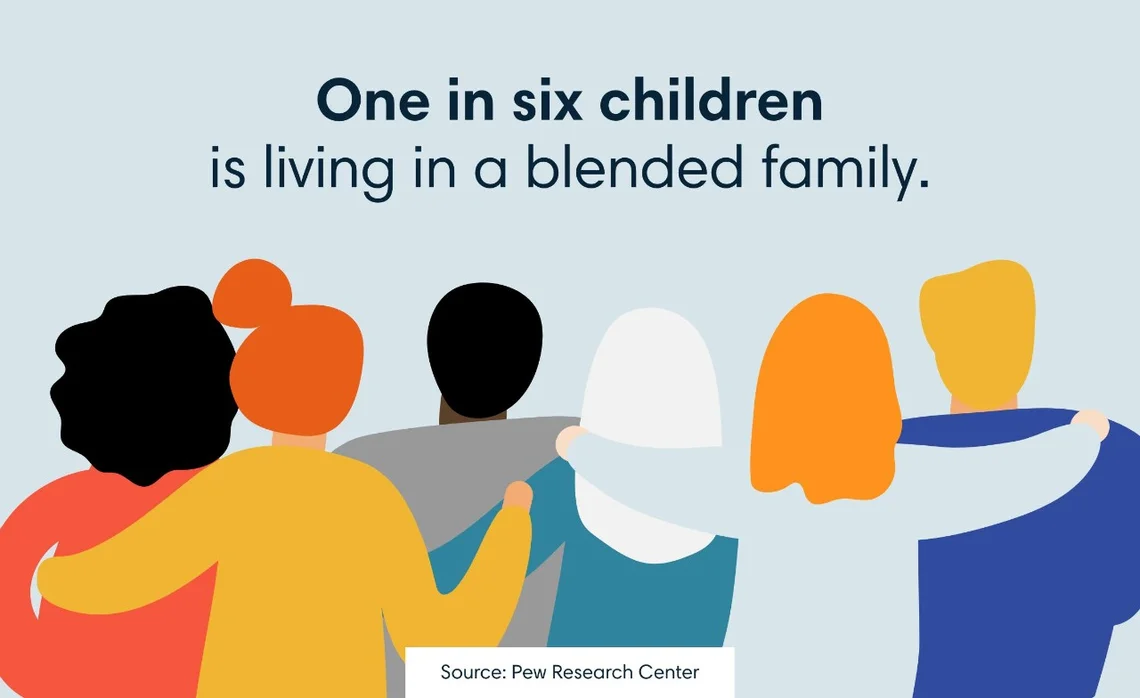Digital banking for business
Seamlessly access all of your accounts from one place with First Citizens Digital Banking for business.

Control your portfolio
Invest how you want, when you want, in real time with Self-Directed Investing.

Digital banking for business
Seamlessly access all of your accounts from one place with First Citizens Digital Banking for business.
See how we're supporting companies
We're committed to serving companies as they expand and succeed. The proof is in our success stories.
Q4 Quarterly Market Review: Available now
The Making Sense team reviews changes in the market during Q4 2025.
The modern household can be complicated. According to Pew Research, by 2014 about 16% of children in the US lived in a blended family—a household that has a stepparent, stepsibling or half-sibling.

Blended family finances can pose unique challenges, which is why having the right strategies in place is so important. Walt Reed, Director of Trust and Estate Tax at First Citizens, suggests that a solid financial plan can help ensure that everyone is on the same page and that financial responsibilities are handled appropriately.
Here's what you should know about blended family finances and tips on how to manage them.
It's important to understand the financial impact when two families merge—not just the money coming in, but also the expenses, debts and assets. There are other considerations as well, like the age of each family member.
"A blended family could span generations," says Reed. "And that could make planning difficult when you have children in grade school and possibly an aging parent, too."
Someone who's close to retirement might shift spending and saving habits to accommodate the financial needs of their new spouse's children. Instead of putting most of their earnings into retirement, they may be paying for school-related expenses or extracurricular activities. Similarly, someone with minimal financial obligations might come into a situation where they must help provide for their partner's elderly parent.
Whether you're blending families, entering your first marriage or cohabiting, talking about finances is an essential element of success. Be open and honest about your financial situation, including each person's income, expenses, debts and investments. Both spouses should have a mutual understanding of each other's goals, expectations and concerns to make sure they're aligned when it comes to spending, saving and passing on assets.
Without that understanding, your financial planning may be less effective, Reed says. "I've been in situations where one spouse is saying something the other spouse hasn't heard before," he says. "It's not the most comfortable position to be in."
Couples in a blended family need to have serious conversations about their newly combined finances and future goals before they can effectively plan their estate.
The need is a common one.

According to the Pew Research Center, one in six children is living in a blended family.
When two people get married, they typically file joint tax returns. Whether it's a first marriage or a remarriage, Reed suggests it may not always be a beneficial move.
"If you're marrying someone who's had a life before you, you may or may not know what that person is bringing to the marriage," he says. For example, if one spouse is self-employed and the other isn't completely aware of their business obligations, it might not be wise to sign a joint tax return.
Even if children are involved, it doesn't mean couples can always claim them as dependents. If one spouse is coming out of a divorce and sharing custody of a child, they may only receive the exemption some years, depending on the terms of their divorce.
"It really behooves individuals to stay on top of tax planning from year to year so that there are no surprises," says Reed.
If one or both spouses are coming into the blended family from a previous divorce, they may be aware of the unpleasant experience of dividing assets between separating parties. They may be less than enthusiastic about joining assets again.
Reed says that's okay. "I'm a big fan of keeping things separate," he says. While it might seem complicated to individually pay for joint expenses, Reed says it doesn't have to be.
"If one person's paying the mortgage and the other is paying the joint utilities and other expenses, one person can cut the other a check for the difference to even things out," he explains.
Separate assets may also help with estate planning. "If you have joint assets, they'll go to the spouse in most cases through rights of survivorship depending on how they're titled," Reed notes.
That could create major headaches if your plan was to leave assets to a child from a previous marriage, especially if that child isn't close to your new spouse. If a stepparent isn't as attached to their stepchildren as they are to their own children, they may skip over them when passing on the deceased's assets.
"You don't need a 50-page trust in order to do some effective estate planning," says Reed. "But there needs to be something to make sure you know where individual and joint assets will go upon the death of one spouse or the other."
Family dynamics are easy to overlook because they're not directly related to money, but they could be a big reason for separating or protecting assets. If a child is struggling in a marriage that's likely to end in divorce, you'll want to be sure any assets that child is expecting to receive won't be lost in the separation.
Or there may be in-laws from a previous marriage who still intend to leave assets to their grandchildren in the newly blended family. You should keep that in mind when trying to evenly distribute the family wealth among children and stepchildren.

"There are a lot of blended families who face these issues that people don't necessarily associate with finances," says Reed. "But blended families need to approach their financial planning with the idea that they should account for the totality of their lives and not just dollars and cents."
With variables like shared child custody, exes and even potentially supporting one spouse's parents in a new marriage, blended families can change quickly and often. Remember that a plan isn't necessarily binding, and it can be updated as new developments emerge. Understanding your challenges, talking about them with a professional and being willing to adapt offer the best chances of success for managing finances in a blended family.



Your investments in securities and insurance products and services are not insured by the FDIC or any other federal government agency and may lose value. They are not deposits or other obligations of, or guaranteed by any bank or bank affiliate and are subject to investment risks, including possible loss of the principal amounts invested. There is no guarantee that a strategy will achieve its objective.
About the Entities, Brands and Services Offered: First Citizens Wealth® (FCW) is a registered trademark of First Citizens BancShares, Inc., a bank holding company. The following affiliates of First Citizens BancShares are the entities through which FCW products are offered. Brokerage products and services are offered through First Citizens Investor Services, Inc. ("FCIS"), a registered broker-dealer, Member FINRA and SIPC. Advisory services are offered through FCIS, First Citizens Asset Management, Inc. and SVB Wealth LLC, all SEC registered investment advisors. Certain brokerage and advisory products and services may not be available from all investment professionals, in all jurisdictions or to all investors. Insurance products and services are offered through FCIS, a licensed insurance agency. Banking, lending, trust products and services, and certain insurance products and services are offered by First-Citizens Bank & Trust Company, Member FDIC and an Equal Housing Lender icon: sys-ehl, and First Citizens Delaware Trust Company.
For more information about FCIS, FCAM or SVBW and its investment professionals, visit FirstCitizens.com/Wealth/Disclosures.
See more about First Citizens Investor Services, Inc. and our investment professionals at FINRA BrokerCheck.
This material is for informational purposes only and is not intended to be an offer, specific investment strategy, recommendation or solicitation to purchase or sell any security or insurance product, and should not be construed as legal, tax or accounting advice. Please consult with your legal or tax advisor regarding the particular facts and circumstances of your situation prior to making any financial decision. While we believe that the information presented is from reliable sources, we do not represent, warrant or guarantee that it is accurate or complete.
Third parties mentioned are not affiliated with First-Citizens Bank & Trust Company.
Links to third-party websites may have a privacy policy different from First Citizens Bank and may provide less security than this website. First Citizens Bank and its affiliates are not responsible for the products, services and content on any third-party website.
First Citizens Bank is a Member FDIC and an Equal Housing Lender icon: sys-ehl.
NMLSR ID 503941

Treasury & Cash Management
Electronic Bill Presentment & Payment
Investment & Retirement Services
Community Association Banking
Equipment Financing & Leasing
Credit Cards
Merchant Services
Email Us
Please select the option that best matches your needs.
Customers with account-related questions who aren't enrolled in Digital Banking or who would prefer to talk with someone can call us directly.